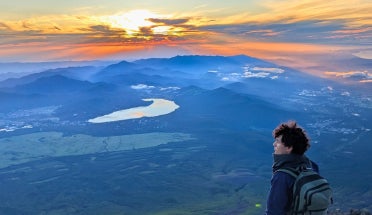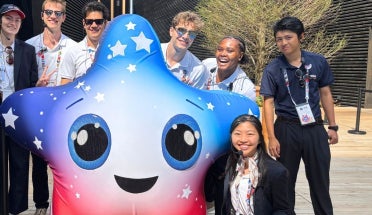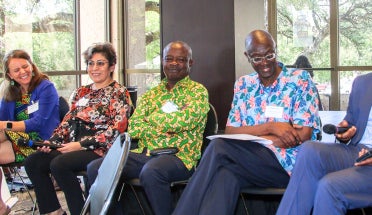
A Day in the Life of Jeremy Nicot ‘17: Peace Corps Volunteer in Senegal
- Feb 22, 2019
- Peace Corps
Being a Peace Corps Volunteer means living away from family and friends, and being unable to physically witness significant events back home, which was difficult for Peace Corps Volunteer Jeremy Nicot. But his community in Senegal welcomed him as their own, which helped to ease the homesickness.
An Austin native, Nicot graduated from UT with a history degree and government minor in the spring of 2017. He has been serving in Senegal since February 2018 as a Community Economic Development volunteer. His task is to increase economic participation among women and youths.
We caught up with Nicot and asked him what a day in his life is like and the friendly people he comes across every day.
Jeremy, how does your typical day look like?
Generally speaking, I wake up around 7:00 to do my daily routine, then around 8:00 I open my hut door and greet my family. From that point on I either go eat breakfast at my mother's breakfast sandwich boutique or go into town to eat a bowl of beans and an egg. I have a round of about four to five people who I visit every day just to say hi, but I don't stay for too long, maybe 15 minutes for each person. While I'm doing this, I'll run into all sorts of new folks who greet me and want to talk to me, which can be an opportunity to meet new people and potential projects. After I'm done greeting I typically have one or two people whose houses I visit because of an ongoing discussion about projects, or an upcoming training. I'm back at my compound by 3:00 most days, in order to eat lunch with my family, and generally spend the rest of the day in my neighborhood with my family. Either I sit with them, or I leave my hut door open and read a book. Really my days can be very variable based on the projects I have, or the events people invite me to.
Why did you decide to join Peace Corps?
I joined the Peace Corps primarily because I had always been drawn to the idea of serving something greater than myself, but I knew that it was not something unique to just Peace Corps. Peace Corps offered me the opportunity to serve, as well as the opportunity to learn about and experience another culture in a manner that is essentially impossible to attain in any normal circumstances.
Describe your community and location.
My site is primarily split between two ethnicities, the Pulaars and the Bassaris. Pulaars speak Pulaar and are nearly all Muslim, while the Bassaris are nearly all Christian. I learned Pulaar and my host family is Pulaar, so I have not been exposed to too much Bassari culture and language. Regardless of ethnicity, most people engage in subsistence-level farming of corn, beans, and rice, which is by far the largest economic activity here.
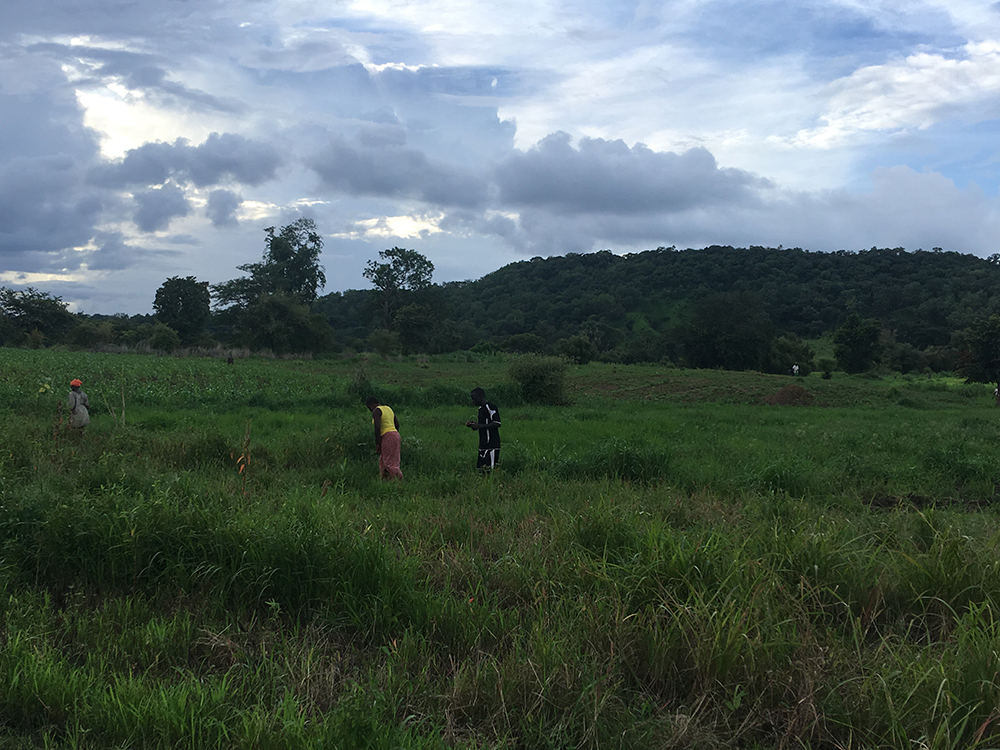
Describe your job.
As a community economic development volunteer, my goal is to increase economic participation, particularly among women and youths. What this means on the ground is that I try and brainstorm new economic activities with host country nationals at my site, teach accounting and basic business and generally act as a resource for people to lean on when they need relevant information.
What is your favorite part about being a Peace Corps Volunteer?
The parts of Peace Corps that are most unique to my experience are the daily interactions I have with folks at my site. Being able to greet people like old friends, visit people's houses and eat lunch when they inevitably invite me, and being invited to everyone's baptisms and weddings is such a wonderful thing to be able to do. Essentially being to go about my life at the site, while being accepted by the community in such a generous way is something totally unforgettable that you get reminded of every day, making it one of my favorite things about Peace Corps.
What are the hardest parts about being a Peace Corps Volunteer?
There is a myriad of difficulties associated with being in the Peace Corps. Everyone has different things that they find hard to deal with, so I can only speak to my experience. Personally, the hardest part for me is being so far from family and friends back home without being there to see all the big events, or even to just hang out with them. Over time I've felt a gulf build up between my life back home and my life here, because in a lot of ways the Peace Corps experience is impossible to put into words. Granted, when I first arrived in the country there were lots of things that were difficult, but that has slowly become more tolerable. For example, getting used to living conditions that are substantially lower than what anyone in the States are used to, or feeling culturally isolated and unable to communicate at the site because of the language and cultural barriers.
What have you learned about yourself through your service?
Life here in Senegal moves at a different pace from in the States, and because of this I have a lot of time for introspection, some might say too much time. I feel like I've been able to discover how resilient I am as a person, putting up with all the time it took to learn the language and culture to a point where I don't feel totally out of the loop.
How will your service impact your career or career goals?
I'm not too sure how Peace Corps will directly impact my career goals, because I'm not entirely sure what my career will be. In any case, it's hard to see how Peace Corps couldn't affect my general aim to be involved in international relations and business because of how much I've learned in terms of adapting to local cultural practices and learning a new language.
What are your plans after you complete your service?
After I COS (close of service) I plan on applying for graduate school in international relations or economics, but that's still a work in progress.
What have you gained because of your experience in Peace Corps?
Peace Corps has given me a new perspective on a part of the world that I knew almost nothing about beforehand. It showed me that every day there are people in the world that are living and experiencing things that are radically different from anything I experience in the States.
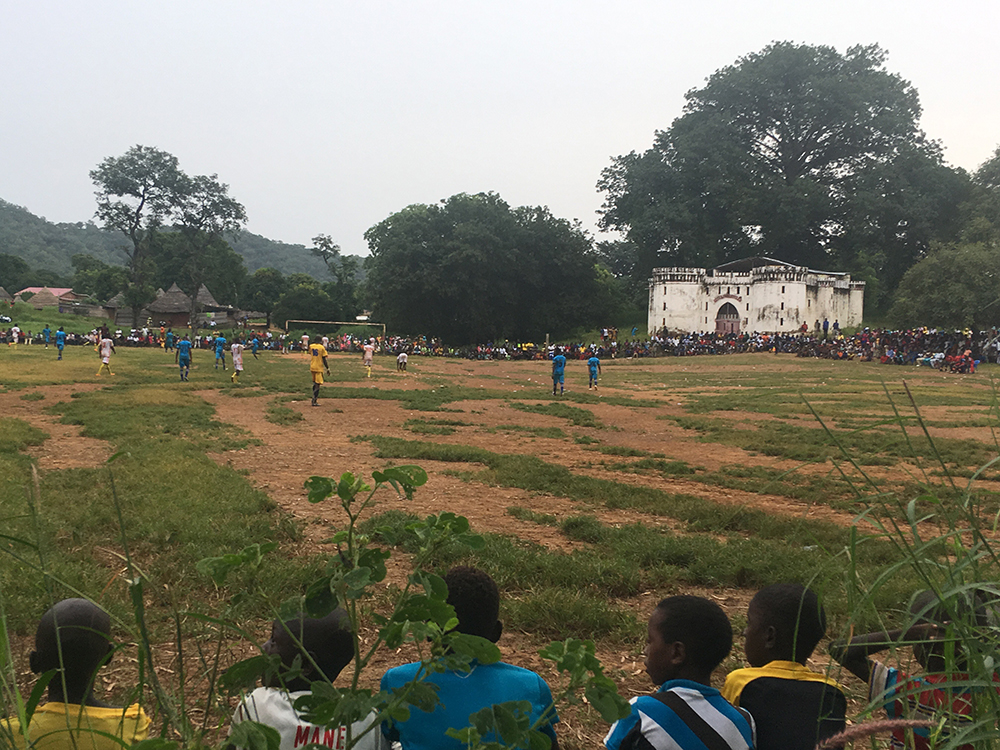
Because of this, I've gained a new perspective on life, a desire for self-improvement, and an appreciation for all that I have. But most of all it has given me a glimpse into the lives of folks that I would otherwise never have met, and allowed me to forge connections with them that I will remember for the rest of my life.
What would you say to current UT students considering applying to Peace Corps?
Peace Corps will open your eyes to the world around in ways you cannot even possibly imagine in so many ways that you will not close out your service the same person that came in. Joining Peace Corps is like walking into a fog bank and having the fog slowly fade away as you learn more and more until you suddenly realize all that was hidden from you until you took that first step.
You will never regret having joined, because despite all the difficulties you encounter, what you gain in self-reflection and the friendships you forged makes it one of the richest experiences you could possibly be exposed to.

